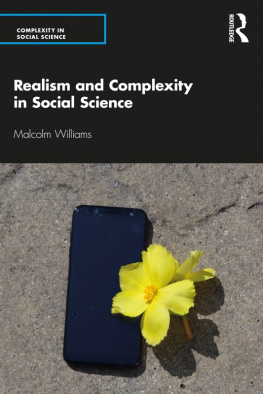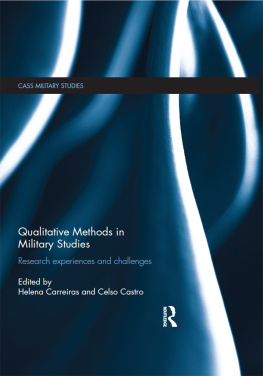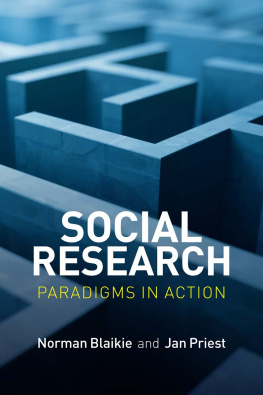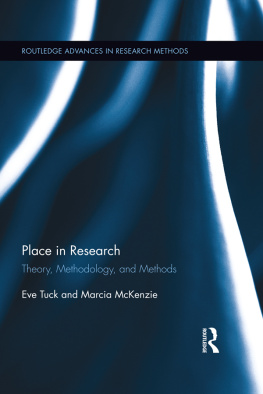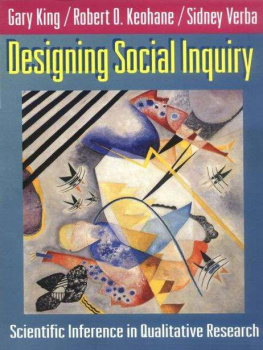SAGE Publications Ltd
1 Olivers Yard
55 City Road
London EC1Y 1SP
SAGE Publications Inc.
2455 Teller Road
Thousand Oaks, California 91320
SAGE Publications India Pvt Ltd
B 1/I 1 Mohan Cooperative Industrial Area
Mathura Road
New Delhi 110 044
SAGE Publications Asia-Pacific Pte Ltd
3 Church Street
#10-04 Samsung Hub
Singapore 049483
Brian D. Haig and Colin W. Evers 2016
First published 2016
Apart from any fair dealing for the purposes of research or private study, or criticism or review, as permitted under the Copyright, Designs and Patents Act, 1988, this publication may be reproduced, stored or transmitted in any form, or by any means, only with the prior permission in writing of the publishers, or in the case of reprographic reproduction, in accordance with the terms of licences issued by the Copyright Licensing Agency. Enquiries concerning reproduction outside those terms should be sent to the publishers.
Library of Congress Control Number: 2015939916
British Library Cataloguing in Publication data
A catalogue record for this book is available from the British Library
ISBN 978-1-4462-5884-2
ISBN 978-1-4462-5885-9 (pbk)
Editor: Mila Steele
Assistant editor: James Piper
Production editor: Imogen Roome
Copyeditor: Christine Bitten
Indexer: Martin Hargreaves
Marketing manager: Michael Ainsley
Cover design: Shaun Mercier
Typeset by: C&M Digitals (P) Ltd, Chennai, India
Printed and bound by CPI Group (UK) Ltd, Croydon, CR0 4YY
Preface
The social and behavioural sciences are a remarkably diverse set of disciplines that display a multitude of different perspectives. Fields as different as anthropology, psychology, sociology, economics and education are readily categorized as social behavioural sciences despite the fact that each discipline is focused on a very different set of topics. Within this diversity, research methodology represents a kind of common currency, and research methods courses form a foundational part of the curriculum. Such courses can be regarded as foundational because they suggest broadly applicable means by which investigators can judge the credibility of inferences that constitute a given body of knowledge. Methods courses are also generative because they provide guidelines on how new knowledge is produced in the social and behavioural sciences. In these courses, students acquire some familiarity with the nature of popular research methods and their use. Textbooks are the primary source of learning. However, they tend to adopt an uncritical approach to the methods they deal with. As such, they contribute to the dogmatic initiation of inquirers into established research traditions that Thomas Kuhn claims is characteristic of puzzle-solving normal science. This initiation is characterized by indoctrination and narrow training. Seldom do methods courses offer a critical examination of the deep structure of these methods. This is unfortunate because knowledge of the conceptual foundations of research methods enables students and researchers to better understand what methods to use, and when to use them. The neglect of conceptual foundations is also deeply corrosive to the aims of science because it diverts attention away from the task of interrogating, and ultimately sharpening, the epistemic assumptions on which decisions about methodology rest. The persistent tendency to separate philosophical argument from empirical action will promote a variety of research that is based on habitual practice rather than on critical thought.
In this book, we concentrate on discussing the conceptual foundations of a varied selection of important social science methodological concepts and research methods. We do this by giving greater attention to the philosophy of science than is normally the case. This stance is justified on the grounds that modern philosophy of science has made important gains in understanding how successful science is practised. This is especially so with respect to scientific methodology. Accordingly, our treatment of methodological topics and research methods gives considerable attention to literatures in the philosophy of science, which helps underwrite more coherent accounts of how to focus on, and structure, investigations in the social and behavioural sciences.
The broad aim of this book is to set out in a fairly systematic fashion some of the main features of a scientific realist philosophy of science, and then consider the philosophys implications for using research methods in the social sciences. Although realism in some form or other is the tacit philosophy of many working scientists, and is endorsed by the majority of professional philosophers of science, it does not figure prominently in methodological discussions and research practice in the social sciences. Many, if not most, philosophical accounts of social science research are anti-realist in nature; they are variously based on variants of empiricist thinking, such as logical positivism, social constructivism, postmodernism and phenomenology. Although we do not argue the case, we think that none of these anti-realist alternatives (and others that might be listed) are superior to realism.
A commitment to one or other form of anti-realism has led to a number of unfortunate consequences. We mention three here, but note others throughout the book. One untoward consequence is that anti-realism has encouraged the idea that quantitative research and qualitative research are fundamentally different modes of inquiry with different accompanying philosophies. Another unfortunate consequence is the prevalent idea that the proper justification of knowledge claims involves nothing more than assessing them in terms of their empirical adequacy. A third negative result is the neglect of the importance of abductive or explanatory reasoning in the generation, development and appraisal of social science theories. We endeavour to remedy these matters.
The most distinctive features, and strengths, of our book are as follows:
- A judicious formulation of realism as the philosophy of major relevance for the social sciences. It is true that Roy Bhaskars philosophy of critical realism has had some influence within social sciences such as sociology, economics and educational studies. However, despite its merits, Bhaskars realism leaves untouched important features of realist philosophy of science because it is insufficiently pluralist in nature. We think that realism should be cast as a broader philosophy than critical realism. Accordingly, we present a wide-ranging view of realism. We also identify two neglected forms of realism that speak to the social sciences in instructive ways.
- The concerted use of research methodology as a source for better understanding social science research methods.


